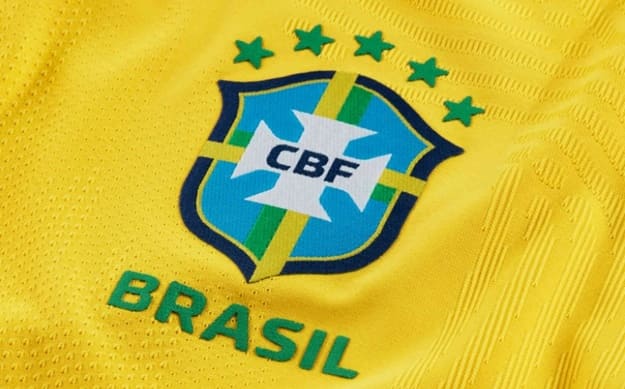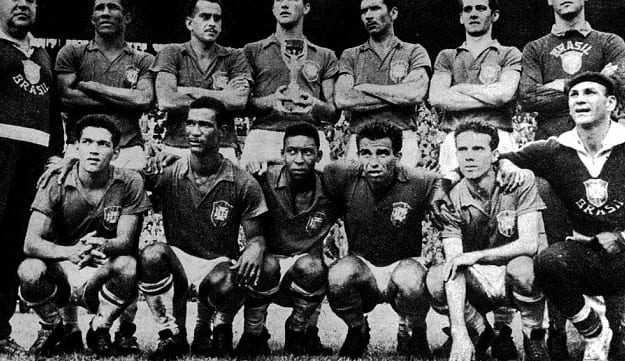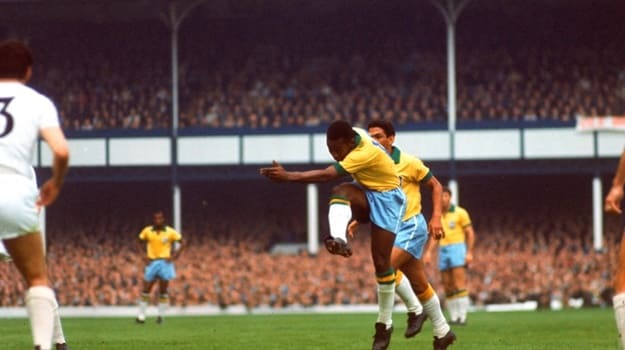

The Brazilian national soccer team is the Brazilian national soccer team and is under the control of the 유흥 업소 알바 Brazilian Football Confederation (CBF). It is believed that the first Brazilian national football team played was the 1914 match between a select team from Rio de Janeiro and São Paulo and the English club Exeter City, which took place at the Fluminense stadium. Brazil won 2-0, scoring goals from Osvaldo Gomes and Osman, although the game is said to have been 3-3. Brazil faced France in the quarterfinals, a classic of total football.
Because Brazil could not find the rhythm, but somehow managed to reach the quarter-finals and then left Hungary. This is known as one of the worst matches in the history of the World Cup, and disunity prevails again. In 1986, the Brazilian team defeated their opponents in the match play and the first quarter-finals, but lost to the French team in a penalty shootout, ending one of the biggest defeats in Brazilian football history. In 1958, under the leadership of young Pele and Galinchas, Brazil finally won its first world championship. The Brazilian team dominates its opponents with speed, talent and creativity. The game is like playing beautiful music in a stadium. From 1958 to 1970, Brazil won three world championships, using Pele, Carlos Alberto, Garrincha, Jairzinho, Gerson, Rivelino, Tosta, Didi, The talents of international superstars such as Wawa and Bellini have contributed to the transformation of Brazil. Promising football country to the world’s largest football giant.
The 1970 World Cup Brazilian team is often referred to as the best national team in football history. In many ways, the 1970 team gave the Brazilians the hope that their country would do well, overcoming the political turmoil it is currently experiencing. However, Brazil’s positive image, based on its football strength, still faced contradictions that held back the country’s reputation and, subsequently, its development; Outside coverage and analysis never stopped portraying Brazilian football as yet another example of the country’s slow development, as a raw material that is far from fully developed.
When football first appeared in Brazil in 1894, British sport was an elite game. Football in Brazil, like most other countries, was at first a magnificent business. However, football did not originate in Brazil, but introduced the local population to a Scotsman who lived in Brazil in the late 1800s.
The first British team to play in Brazil was Corinthians in 1910, which inspired the creation of one of the most popular teams in Brazil, the Corinthians Paulista Sports Club. Brazilian football improved as the players became more experienced, and in 1927, Club Atla Tiko Paulistano was invited to tour Europe. They were the first Brazilian team to travel abroad and demonstrate the qualities that will soon make Brazil one of the world’s largest soccer powers. In 1905, the Bangu Atlético Club became the first football team to feature a black player in the Brazilian national competition, Francisco Carregal.
There are many theories and stories about how this iconic sport originated in Brazil, but Charles Miller was considered the man responsible for bringing football to his home country. It is a fact, however, that one Charles Miller, born in Brazil in 1874 and educated in England, brought the original football equipment back to Brazil when he returned in 1894. Some believe it was the Scotsman Thomas Donoho who brought the original football equipment. the first soccer balls in Brazil in the early 1890s.

According to one version of the story, football was first brought to Brazil by British and Dutch sailors in the second half of the nineteenth century, who played those first games on the beaches of the northeast coast. A second origin story says that the history of Brazilian football began in 1898 when the first football team was formed at the Mackenzie School in São Paulo.
The game was quickly revived by the Brazilians, and since the first World Cup held in 1930, Brazil has been one of the few countries where the national team competed in the very first World Cup. Brazil won its first FIFA World Cup, the 30cm female figure was proposed in 1930 and is now the most enviable trophy in the world’s greatest international sport. Only the arrival of a new generation of players, including two of the sport’s greatest exponents in Garrincha and Pele, finally allowed Brazil to win the 1958 World Cup and kick-start what the country’s famed football playwright and writer Nelson Rodriguez has called it a “mestizo ensemble.”
Brazil’s distinctive form of soccer prowess was a counterweight to the conventional view of Brazil as a backward and underdeveloped country. Another World Cup victory followed in 1962, when football made its mark during the Bossa Nova years, when the economy was booming and Brazilians felt a surge of confidence in the future. In 1994, A SeleASSAPSo became world champions for the fourth time in history. But all went well and the Brazilian team that reigned in international football began to form again.
Brazil’s 1970 squad is considered one of the best football teams of all time. The following season, Brazil did not lose a match, but thanks to the format of two group stages leading directly to the final, Brazil finished second in its group after the main rival and host country Argentina (which had a better average goal). The 1980s weren’t even a decade for Brazilian football. However, from now on, Brazil will be taken seriously by the rest of the football world. The 1950 edition, the first since World War II, was both a holiday and a disaster for Brazilian fans. Buta | That did not happen.
Brazil suffered a national tragedy that is still remembered today as Maracanazo (aa). The squad was essentially the same as the 1958 champions, except that PelA (c) was injured in the second game of the tournament. In a 2-0 win over Mexico, Brazil lost football star Pele to injury; However, this did not stop the Brazilian team from beating Spain, England and Chile and reaching the final. Brazil advanced to the quarterfinals, losing 4-2 to tournament favorite Hungary in one of the worst games in football history, known as the Battle of Bern. At the 1982 World Cup, tournament favorite Brazil easily passed the first part of the draw, but a 3-2 defeat to Italy in one of the classic matches in the history of the World Cup finals was knocked out of the tournament. in the match they call “Sarrias Disaster”, referring to the name of the stadium.
And even today, many Brazilians claim that the 1982 team was the best team in Brazilian history – or at least the best team that never won the World Cup. It is impossible to tell the story of the Brazilian World Cup without mentioning the best Brazilian footballers of all time. The history of Brazilian football includes 5 World Cup titles to date and great footballers from that country including Ronaldo, Bebeto, Cafa, Ronaldinho, Adriano, Romario, Zico, Rivelino, Garrincha, Roberto Carlos, Dunga, Kaka and many more.